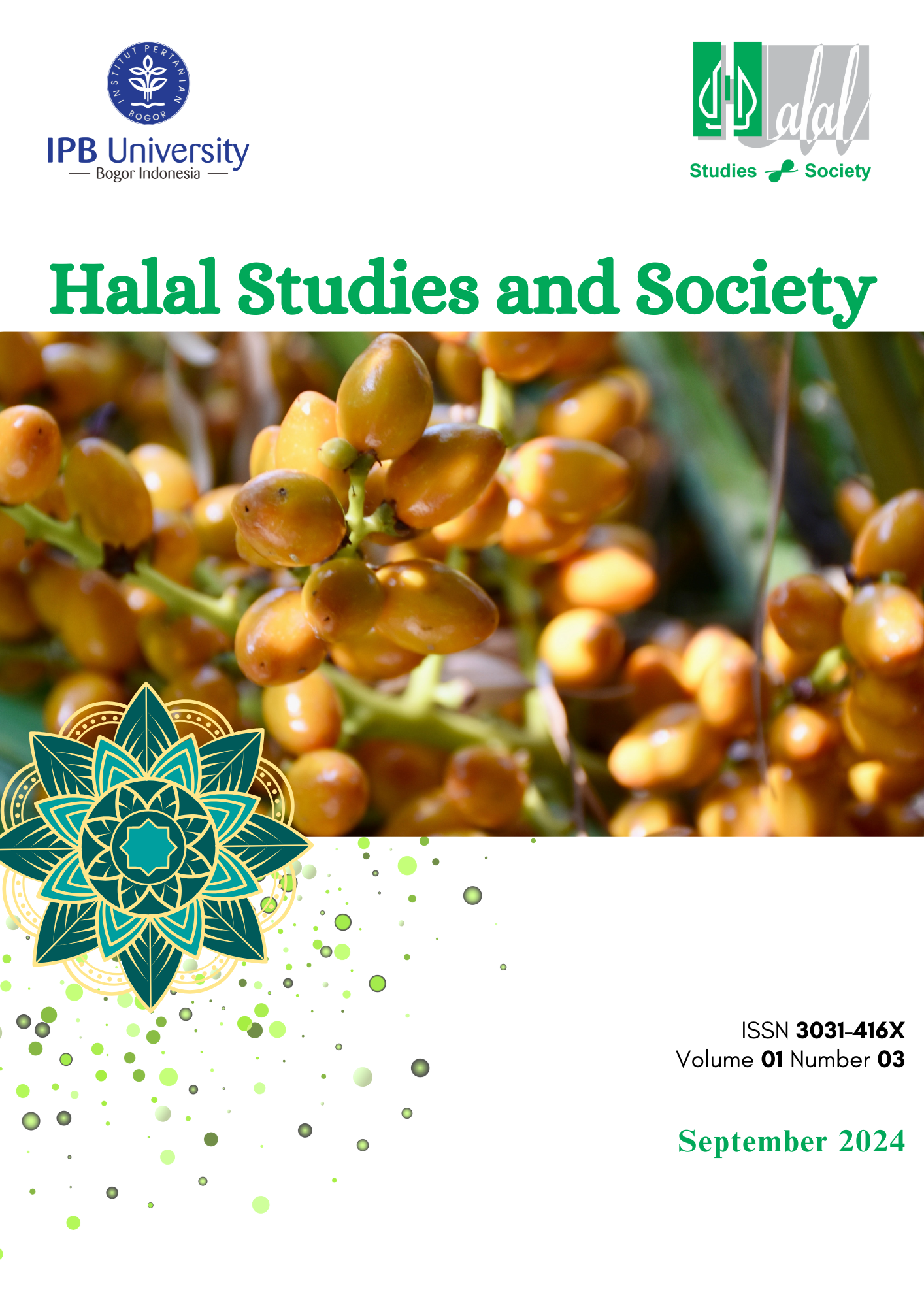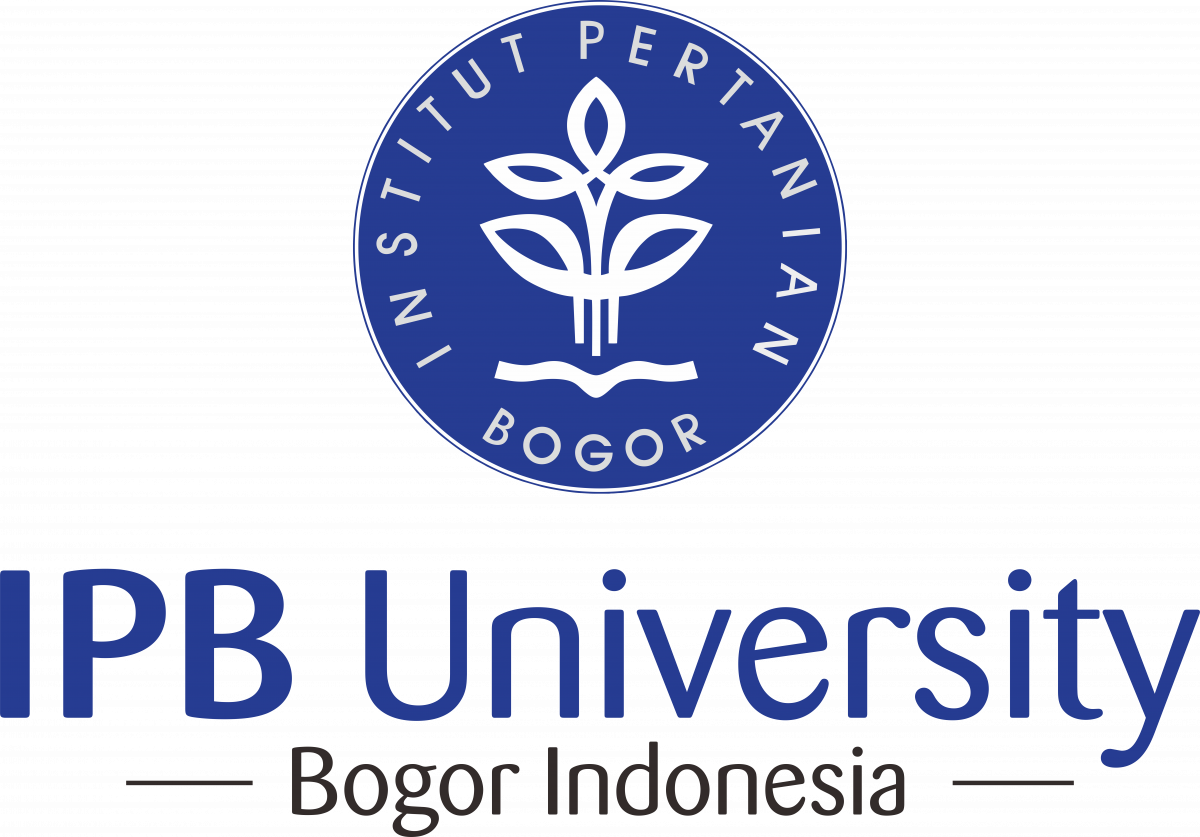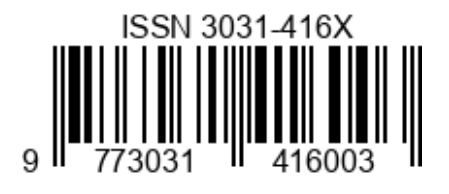Halbuy-Now as a marketplace for surplus food supporting a sustainable halal agri-food supply chain through waste minimization
Abstract
HalBuy-Now is a mobile application designed to address food waste and enhance sustainability in the Indonesian agri-food sector. This application connects consumers with halal-certified restaurants offering surplus food at discounted prices. With the growing global demand for halal products and the persistent issue of food waste, HalBuy-Now provides an innovative solution for redistributing surplus food that would otherwise be discarded. The application also promotes sustainable consumption habits, offers cost-saving opportunities for consumers, and supports local food businesses. Through features such as real-time inventory management and location-based ordering, HalBuy-Now effectively minimizes food waste, reduces carbon emissions, and fosters a circular food economy. Additionally, the application empowers consumers to make well-informed purchasing decisions, contributing to the national goals of sustainability, food security, and the promotion of halal-certified products. By combining technology with sustainable agricultural practices, HalBuy-Now plays a key role in advancing Indonesian efforts to reduce food waste while strengthening its position in the global halal food market.
References
Alalwan A. Mobile food ordering apps: An empirical study of the factors affecting customer satisfaction and continued intention to reuse. International Journal of Information Management. 2020;50:28-44. https://doi.org/10.1016/j.ijinfomgt.2019.04.008
Bachev H. Sustainable Agriculture: The Role of Stakeholder Collaboration. Sustainability. 2018;107:2365.
Bukhtiarova A, Hayriyan A, Chentsov V, Sokol S. Modeling the impact assessment of agricultural sector on economic development as a basis for the country's growth. 2019. https://doi.org/10.21511/imfi.16(3).2019.21
Chiaraluce G, Bentivoglio D, Finco A. The circular economy model in the agri-food sector: A new strategy for the regional development. AIMS Agriculture and Food. 2023;8(3):851-872. https://doi.org/10.3934/agrfood.2023045
Elavarasan M, Nesakumar M. Food wastage reduction mobile application. IJCSMS. 2019;8(10):103-108. ISSN:2320-088X.
Gina GA, Mariya A, Natalia C, Nispuana S, Wijaya MF, Phalepi MY. The role of the agricultural sector on economic growth in Indonesia. Indonesian Journal of Multidisciplinary Sciences. 2023;2(1):167-179. https://doi.org/10.59066/ijoms.v2i1.325
Hu J, Zhang X, Moga LM, Neculita M. Modeling and implementation of the vegetable supply chain traceability system. Food Control. 2013;30:341-353. https://doi.org/10.1016/j.foodcont.2012.06.037
Lavelli V. High-warranty traceability system in the poultry meat supply chain: A medium sized enterprise case study. Food Control. 2013;33(1):148-156. https://doi.org/10.1016/j.foodcont.2013.02.022
Lewandoski M. The strive to social innovation that thrives on the mobile application: A case study of Too Good To Go. Procedia Computer Science. 2023;225:902-911. https://doi.org/10.1016/j.procs.2023.10.077
Ma'rifat TN, Rahmawan A. Pengembangan kerangka konseptual model rantai pasok halal pada komoditas daging ayam di Kabupaten Ponorogo. Jurnal Pertanian Cemara. 2018;15(2):29-35. https://doi.org/10.24929/fp.v15i2.655
Matisen TF, Johansen FR. The impact of smartphone apps designed to reduce food waste on improving healthy eating, financial expenses, and personal food waste: Crossover pilot intervention trial studying students' user experiences. JMIR Form Res. 2022;6(9):1-11. https://doi.org/10.2196/38520
Moldovan M, Dabija DC, Pocol CB. Innovative strategies for food waste reduction and the use of mobile applications in the agri-food sector. Scientific Papers Series Management, Economic Engineering in Agriculture and Rural Development. 2024;24(2):675-688.
Nawawi MSAM, Abu-Hussin MF, Faid MS, Pauzi N, Man S, Sabri NM. The emergence of halal food industry in non-Muslim countries: A case study of Thailand. Journal of Islamic Marketing. 2020;11(4):917-931. https://doi.org/10.1108/JIMA-05-2018-0082
Rahim NM, Yunus NFA. Consumers satisfaction towards e-Hailing food delivery services during movement control order period: A case study in Selangor. Journal of Science and Mathematics Letters. 2021;9(2015):2600-8718. https://doi.org/10.37134/jsml.vol9.sp.1.2021
Seymour T, Hussain JZ, Reynold S. How to create an app. International Journal of Management & Information Systems - Second Quarter. 2014;18(2):123-137. https://doi.org/10.19030/ijmis.v18i2.8494
[SGIE] State of the Global Islamic Economy Report. State of Global Islamic Economy Report 2023/24. New York (US): Thomson Reuters. 2023.
Stangherlin I, Pires A, O'Connor L. Consumer behavior and food waste: An analysis of the surplus food marketplace. Journal of Cleaner Production. 2021;284:124-132.
Van der Haar S, Zeinstra GG. The impact of Too Good To Go on food waste reduction at the consumer household level. Public Wageningen Food & Biobased Research-Report. 2019;(1975).
Zhang Y, Aschemann-Witzel J, Zielke S. User-centered design for food waste apps: Key features for engagement. Waste Management. 2019;95:42-51.
Copyright (c) 2024 Azkia Yasna Nadhratuzzaman Ash-Shidiqie, Najwa Putri Nayanda, Fayza Rachmelia Ayunina Hanim, Nurul Hidayati, Hafidha Zekkour, Rashdi M. Casim

This work is licensed under a Creative Commons Attribution-ShareAlike 4.0 International License.












